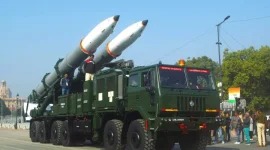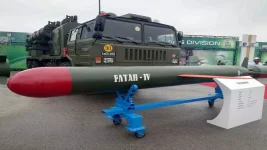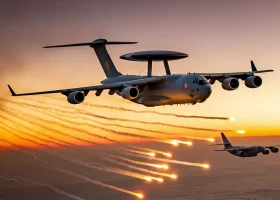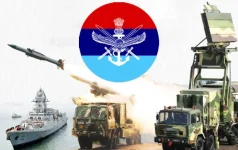- Views: 1K
- Replies: 6

China has recently conducted surface-to-air missile tests on the Karakoram Plateau, in close proximity to the border with India. This display of military might comes even as both nations engage in diplomatic discussions to resolve their ongoing border dispute.
The tests, which involved the successful interception of a subsonic cruise missile at an altitude exceeding 17,000 feet, were publicized by Chinese state media as a demonstration of the country's ability to neutralize advanced missile threats.
Although the exact location of the tests remains undisclosed, analysts suggest that their proximity to the Indian border is a strategic move aimed at deterrence.
This is not the first instance of such tests in the region; China has reportedly been conducting similar exercises since the 2020 Galwan Valley clashes that heightened tensions between the two nations.
The timing of these tests is particularly noteworthy as they coincided with the 31st meeting on border affairs between China and India in Beijing. While both sides agreed to strengthen dialogue and maintain peace along the border, the missile tests cast a shadow over the diplomatic efforts.
Experts interpret the tests as a clear message to India. Lin Minwang, deputy director of Fudan University's Centre for South Asian Studies, stated that the tests serve as a demonstration of China's military capabilities, effectively giving India a "choice to make" regarding its stance on the border issue.
This sentiment was echoed by Chinese military commentator Song Zhongping, who emphasized that the People's Liberation Army (PLA) tests are a "guarantee of strength" backing China's position in the negotiations.
Despite the military posturing, both countries have released statements regarding the ongoing talks. A spokesperson for China's Ministry of National Defence recently stated that India and China have made progress in reducing differences and building consensus. However, India maintains that normalized relations with China are contingent on peace along the border.
Adding to the complexity of the situation, India's External Affairs Minister S. Jaishankar recently reported 75% progress on disengagement issues in Eastern Ladakh.
However, this optimism is tempered by the reality of China's continued infrastructure development along the border, including airfields and heliports in Ladakh and Tibet, which enhance their ability to rapidly deploy troops.
The missile tests, coupled with ongoing infrastructure development and mixed signals from both sides, highlight the delicate balance between diplomatic efforts and military posturing as India and China navigate their complex border dispute.




